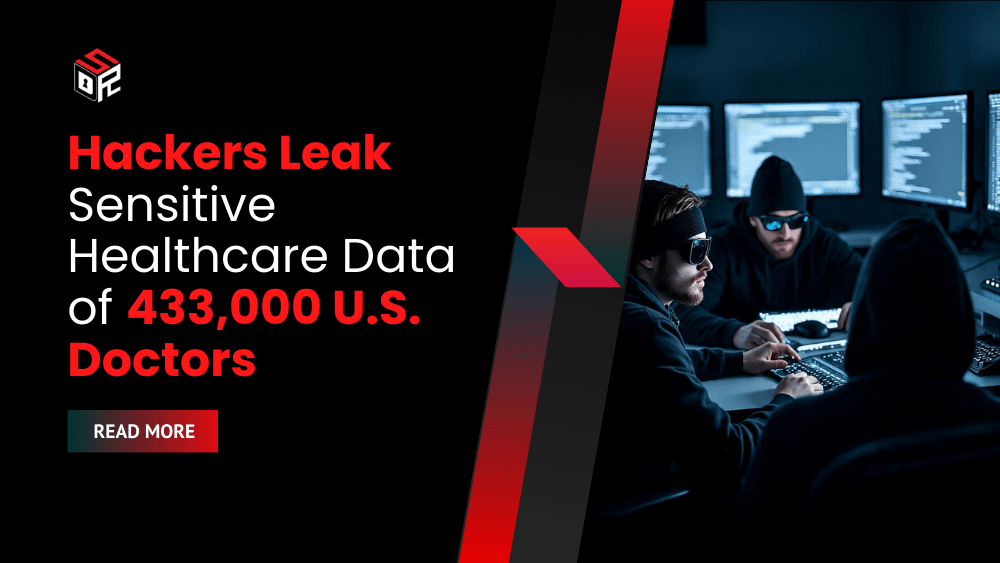Hackers have leaked a massive database allegedly containing the personal and professional information of 433,000 U.S. medical practitioners, raising serious concerns about data security in the healthcare sector.
The stolen data surfaced on a popular cybercrime forum, where attackers frequently share and trade compromised information. While the hackers did not specify the source of the breach, initial analysis suggests the database may have originated from a third-party service provider linked to U.S. healthcare professionals.
The Cybernews research team, which analyzed a sample of the leaked dataset, noted that the information included a mix of both personal and professional details, suggesting it could have been collated from multiple breaches or from a yet undisclosed security compromise.
“Some of the emails haven’t appeared in data breaches, which further adds to the idea that the data could come from different sources, or the breach isn’t yet publicly known,” the Cybernews team explained.
Sensitive Data Linked to Healthcare Professionals
The exposed database reportedly contains a wide range of sensitive information about doctors, surgeons, and other healthcare staff. Data categories include:
- Full names
- Phone numbers
- Professional titles and specialties
- Associated hospitals
- Email addresses
- Home and work addresses
- Other identifiable information
Researchers also observed that the actor behind the post has previously shared similar databases, often categorized by profession, location, or industry.
“In other words, the post’s author may collect the data from many different sources and is being mysterious about what they are,” Cybernews researchers added.
Potential Threats From Leaked Medical Data
The leak poses a number of risks to affected medical professionals. Attackers could exploit this data in several ways:
- Identity Theft: Using personal details to impersonate individuals, open fraudulent accounts, or commit financial fraud.
- Targeted Phishing Attacks: Crafting convincing emails and messages aimed specifically at healthcare professionals, leveraging their roles and associations for credibility.
- Malware Delivery: Convincing victims to download malicious attachments or click on harmful links.
Healthcare data remains one of the most valuable targets on the dark web, not only because of the personal information it contains but also because it can enable fraudulent medical claims and even facilitate illegal acquisition of prescription drugs.
Ransomware Risks for Healthcare Institutions
The implications extend beyond individual practitioners. Cybercriminals often leverage such leaks as a stepping stone for ransomware campaigns against hospitals and healthcare systems. Access to staff credentials or targeted spear-phishing could allow attackers to infiltrate institutional networks.
Ransomware gangs frequently target healthcare organizations due to their critical role in patient care. With hospitals unable to afford downtime, attackers calculate that these institutions are more likely to pay ransom demands.
An Ongoing Pattern of Targeted Healthcare Attacks
The healthcare industry has become a consistent target for cybercriminals, not only because of the richness of personal data but also because of the pressure on organizations to maintain operational continuity.
This latest breach adds to a growing list of incidents where sensitive healthcare data has been exposed, reinforcing the sector’s vulnerability to data breaches, phishing campaigns, and ransomware attacks.









